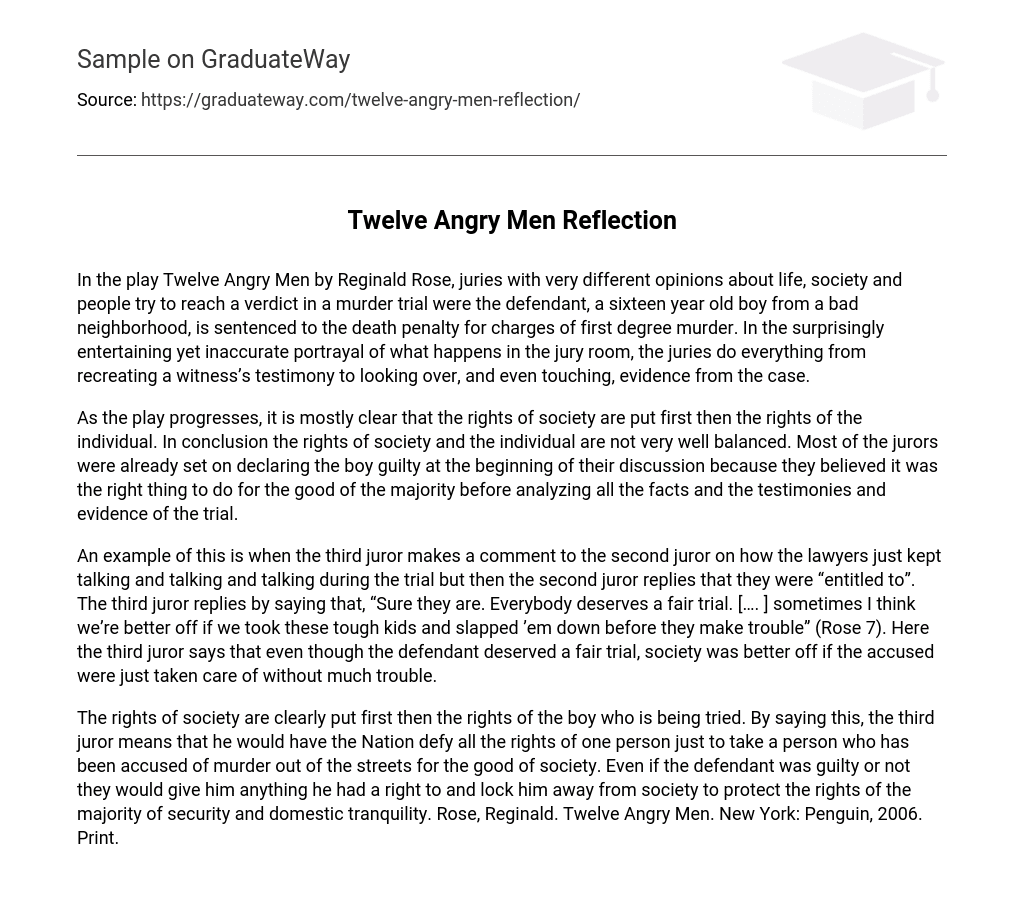In the play Twelve Angry Men by Reginald Rose, juries with very different opinions about life, society and people try to reach a verdict in a murder trial were the defendant, a sixteen year old boy from a bad neighborhood, is sentenced to the death penalty for charges of first degree murder. In the surprisingly entertaining yet inaccurate portrayal of what happens in the jury room, the juries do everything from recreating a witness’s testimony to looking over, and even touching, evidence from the case.
As the play progresses, it is mostly clear that the rights of society are put first then the rights of the individual. In conclusion the rights of society and the individual are not very well balanced. Most of the jurors were already set on declaring the boy guilty at the beginning of their discussion because they believed it was the right thing to do for the good of the majority before analyzing all the facts and the testimonies and evidence of the trial.
An example of this is when the third juror makes a comment to the second juror on how the lawyers just kept talking and talking and talking during the trial but then the second juror replies that they were “entitled to”. The third juror replies by saying that, “Sure they are. Everybody deserves a fair trial. […. ] sometimes I think we’re better off if we took these tough kids and slapped ’em down before they make trouble” (Rose 7). Here the third juror says that even though the defendant deserved a fair trial, society was better off if the accused were just taken care of without much trouble.
The rights of society are clearly put first then the rights of the boy who is being tried. By saying this, the third juror means that he would have the Nation defy all the rights of one person just to take a person who has been accused of murder out of the streets for the good of society. Even if the defendant was guilty or not they would give him anything he had a right to and lock him away from society to protect the rights of the majority of security and domestic tranquility. Rose, Reginald. Twelve Angry Men. New York: Penguin, 2006. Print.





